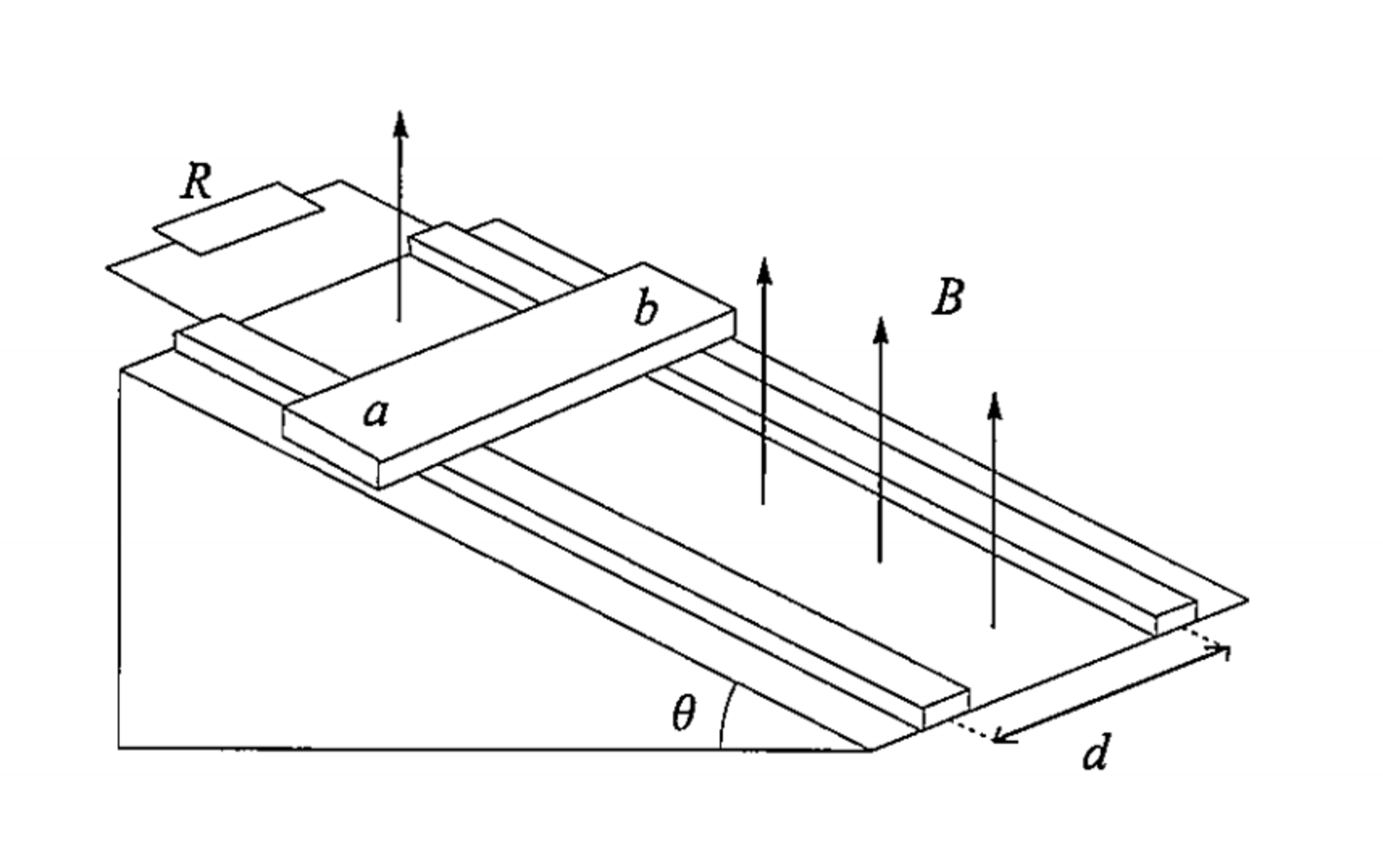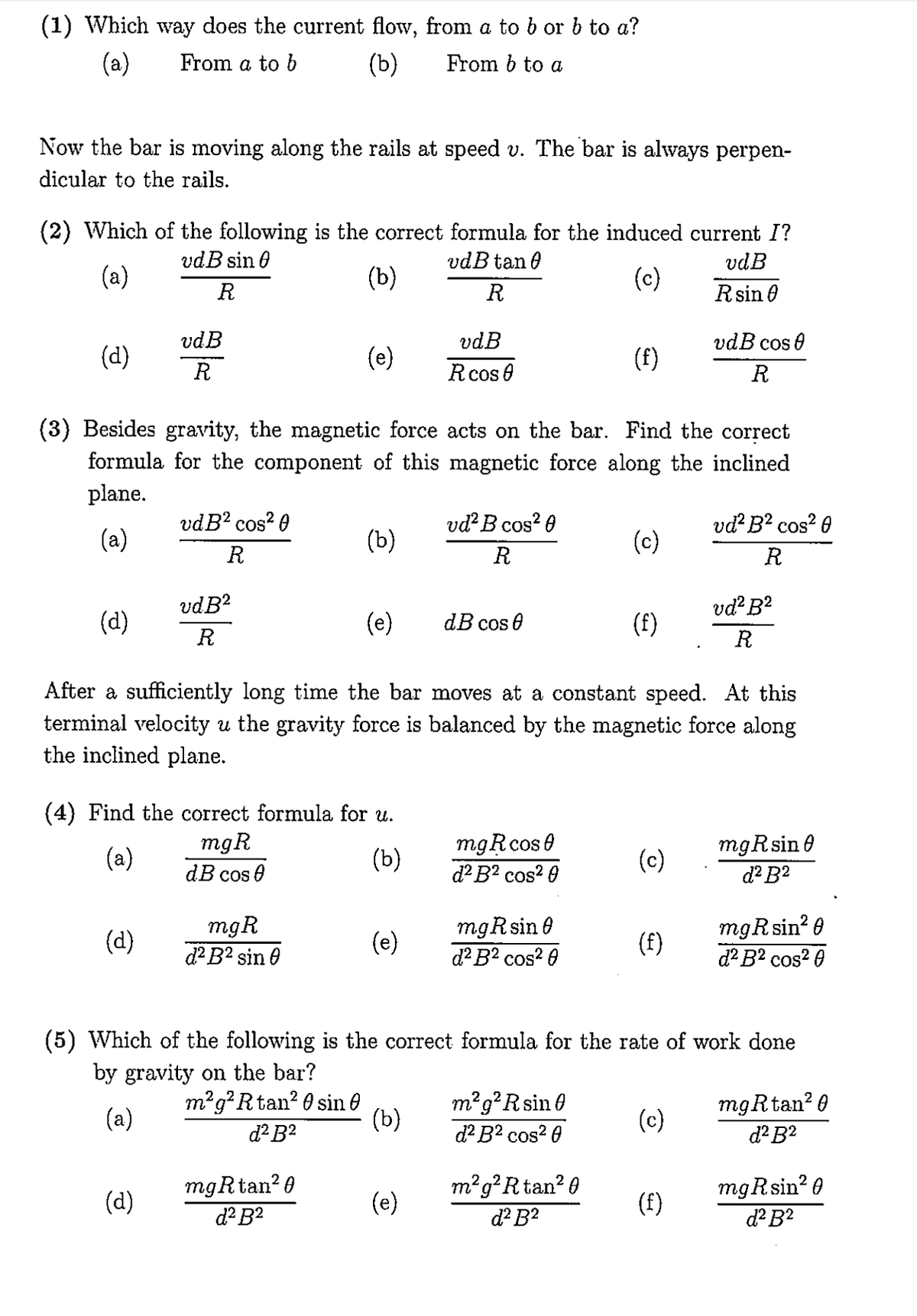A conduting bar of mass m that can slide on a pair of conduting rails

The figure shows a conduting bar of mass m that can slide whitout friction on a pair of conduting rails separated by a distance d and located on an inclined plane that makes an angle θ with respect to the ground. The two rails are connected by a resistor. The resistence of the resistor is denoted as R. A uniform magnetic field of magnitude B is directed upward, perpendicular to the ground over the entire region through which the bar moves. The bar is released from the rest and slides down. The acceleration due to gravity is denoted as g.
Answer the questions:

This section requires Javascript.
You are seeing this because something didn't load right. We suggest you, (a) try
refreshing the page, (b) enabling javascript if it is disabled on your browser and,
finally, (c)
loading the
non-javascript version of this page
. We're sorry about the hassle.
It is so easy.Just solve first and last question with the use of fourth question's common answer and get the solution. In first question,we may use formula for Lorentz Force(F=q(v×B)) on current carrying wire to get answer.
And in fifth , use P=F.v by taking v from fourth question and F=mgsinx.